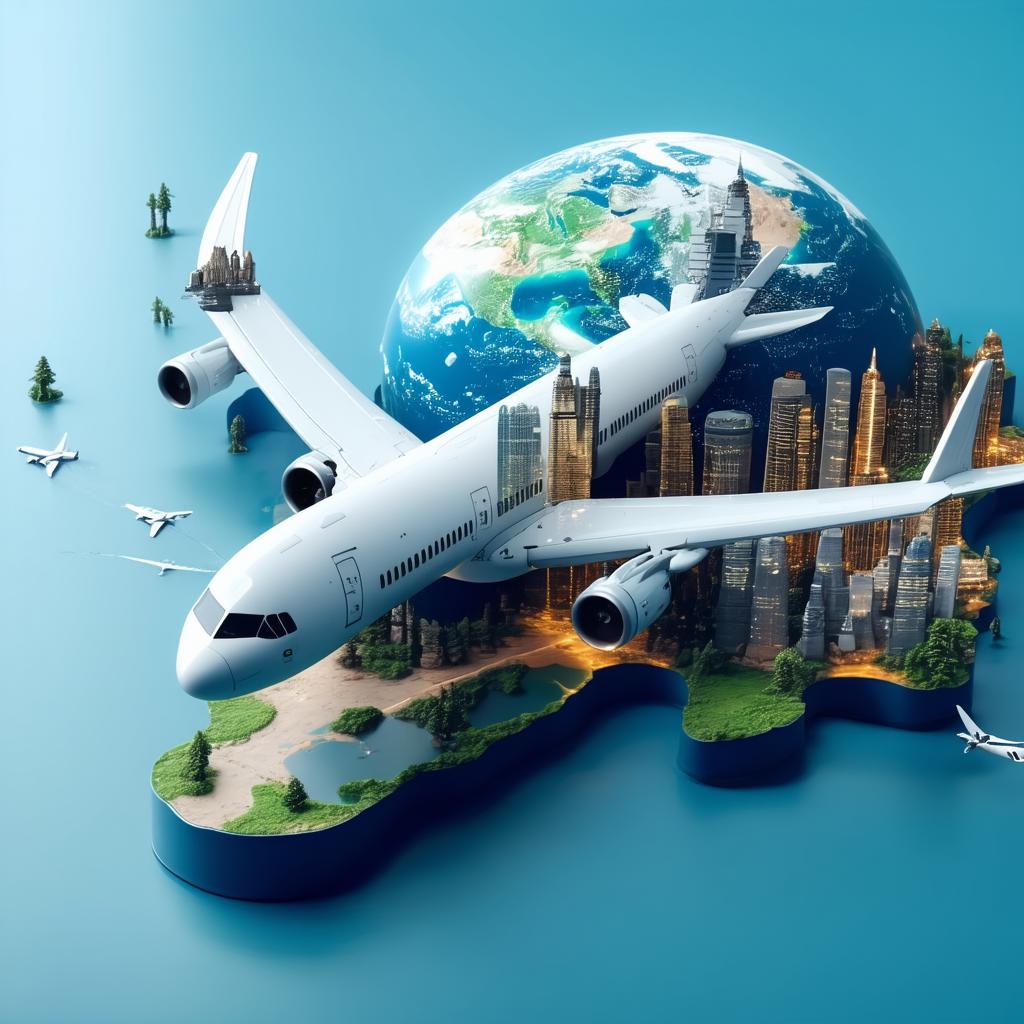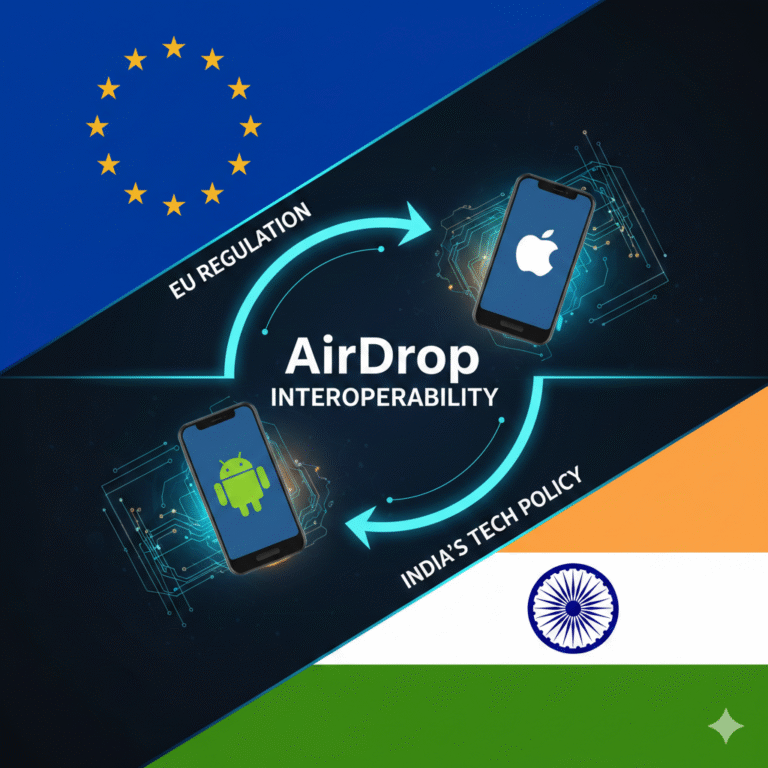How AI is Helping Travelers: The Future of Smart Travel
Introduction: AI is Revolutionizing Travel
Travel has always been an exciting adventure, but with artificial intelligence (AI) stepping in, it has become smarter, easier, and more personalized than ever. AI is changing the way we plan, book, navigate, and experience travel, making every step of the journey more seamless.
From AI-powered travel assistants helping us find the best flight deals to smart hotel rooms adjusting to our preferences, AI has truly transformed the travel experience. But how exactly is AI making travel better? Let’s explore the many ways AI is revolutionizing the world of travel.
AI in Travel Planning: Smarter Itineraries & Better Deals
1. AI-Powered Travel Search & Price Predictions
Gone are the days of endlessly searching for flights and hotels. AI-powered platforms like Google Flights, Skyscanner, and Hopper analyze historical data and predict the best time to book flights at the lowest prices. These AI tools continuously track price trends and notify travelers when to buy tickets or wait for a better deal.
2. AI Travel Assistants & Personalized Itineraries
AI-powered travel assistants like TripIt and Roam Around create customized itineraries based on a traveler’s preferences. These apps use AI to recommend hotels, restaurants, and attractions tailored to your interests.
✅ Example: If you love adventure, AI can suggest thrilling activities like skydiving or scuba diving in your destination. If you’re a foodie, it will recommend highly-rated local restaurants that match your taste.
AI in Booking & Reservations: Hassle-Free Travel Arrangements
3. AI Chatbots for Easy Booking
AI-powered chatbots like those on Expedia, Booking.com, and Kayak help travelers book flights, hotels, and rental cars effortlessly. These bots can:
- Provide real-time information on availability and pricing.
- Offer personalized suggestions based on budget and preferences.
- Assist with cancellations, refunds, and rebooking without human intervention.
4. AI-Driven Dynamic Pricing
Airlines and hotels use AI-driven dynamic pricing to adjust rates based on demand, season, and user behavior. AI ensures that travelers get fair pricing while companies optimize their revenue.
✅ Example: Ever noticed flight prices change when you search multiple times? That’s AI adjusting rates based on demand!
AI in Airports & Air Travel: Faster, Safer, and More Efficient
5. AI-Powered Facial Recognition for Check-Ins
Major airports now use AI-powered facial recognition technology for faster and more secure check-ins. This helps:
- Reduce wait times at security checkpoints.
- Enhance passenger identity verification.
- Speed up boarding and immigration clearance.
✅ Example: Delta Air Lines and Heathrow Airport use biometric check-in systems that let passengers board without showing a passport!
6. AI in Baggage Handling & Flight Safety
AI helps airlines track and manage luggage with RFID technology, reducing lost baggage incidents. Additionally, AI-powered predictive maintenance ensures flights are safe by detecting potential aircraft issues before takeoff.
AI for Personalized Travel Experiences
7. AI-Powered Travel Recommendations
AI analyzes a traveler’s preferences, browsing history, and previous bookings to suggest:
- The best sightseeing spots and local attractions.
- Food recommendations based on dietary preferences.
- Activity ideas based on weather conditions and time of year.
✅ Example: AI in Google Maps suggests nearby attractions and restaurants based on user reviews, distance, and personal preferences.
8. AI for Real-Time Language Translation
AI-powered apps like Google Translate and iTranslate help travelers communicate in foreign countries without language barriers. These apps use AI to:
- Translate text, voice, and even images (signboards, menus, etc.).
- Provide instant voice translations for easy conversations.
✅ Example: Google’s real-time conversation feature lets users speak in one language while AI translates and speaks in another instantly!
AI in Hotels: Smart Stays & High-Tech Hospitality
9. AI-Driven Smart Hotel Rooms
Hotels are adopting AI to create customized and automated guest experiences. AI-enabled smart rooms can:
- Adjust temperature, lighting, and music based on guest preferences.
- Provide voice-activated room controls using assistants like Alexa or Google Assistant.
- Use AI chatbots for room service requests and concierge support.
✅ Example: Hilton’s “Connie” is an AI-powered robot concierge that helps guests with directions, restaurant recommendations, and hotel services.
10. AI-Powered Customer Service in Hotels
AI chatbots handle guest inquiries, complaints, and requests in hotels, ensuring:
- 24/7 assistance without waiting for human staff.
- Faster response times for better guest satisfaction.
- Automated check-in and check-out services to avoid long queues.
AI in Navigation & Transportation
11. AI-Enhanced Navigation Apps
AI-powered apps like Google Maps, Waze, and Citymapper help travelers find the best routes by:
- Offering real-time traffic updates.
- Suggesting alternative routes to avoid delays.
- Predicting public transport schedules and optimal travel times.
✅ Example: Google Maps uses AI-powered machine learning to predict traffic patterns based on real-time data.
12. AI in Ride-Sharing & Self-Driving Cars
AI is enhancing ride-hailing services like Uber and Lyft, making travel safer and more efficient. AI helps:
- Optimize route suggestions for drivers.
- Improve pricing models based on demand.
- Enhance safety monitoring with AI-driven security features.
Additionally, self-driving taxis powered by AI, like Waymo, are set to revolutionize urban transportation.
AI in Travel Security & Fraud Prevention
13. AI for Safe & Secure Travel
AI plays a crucial role in travel security by:
- Detecting fraudulent travel bookings.
- Identifying suspicious behavior at airports and borders.
- Enhancing cybersecurity in online transactions.
✅ Example: Airlines and travel companies use AI to block fraudulent credit card transactions before they happen.
14. AI in Emergency Alerts & Crisis Management
AI helps travelers stay informed and safe by:
- Sending real-time alerts about weather disruptions, strikes, or safety concerns.
- Offering emergency translation services.
- Assisting travelers with medical emergencies and evacuation plans.
The Future of AI in Travel
As AI technology advances, we can expect:
✅ Hyper-Personalized Travel Experiences: AI will tailor entire vacations based on personal preferences.
✅ AI-Powered Virtual Travel Agents: AI assistants will book entire trips seamlessly.
✅ Self-Driving & AI-Powered Transport: Autonomous taxis, hyperloop travel, and AI-powered airplanes may become common.
✅ AI for Space Tourism: AI could help plan vacations beyond Earth in the future!
Conclusion: AI is Shaping the Future of Travel
AI is no longer just a futuristic concept—it’s actively revolutionizing the way we travel. From booking trips and navigating new destinations to ensuring security and personalizing experiences, AI is making travel smarter, safer, and more exciting.
As AI continues to evolve, the future of travel looks even more promising. Whether you’re planning a quick getaway or a once-in-a-lifetime adventure, AI is here to make your journey more seamless, personalized, and enjoyable.
So, are you ready to embrace AI-powered travel? 🌍✈️










Brilliant insights! Speaking of creativity, lets you explore music in exciting new ways.